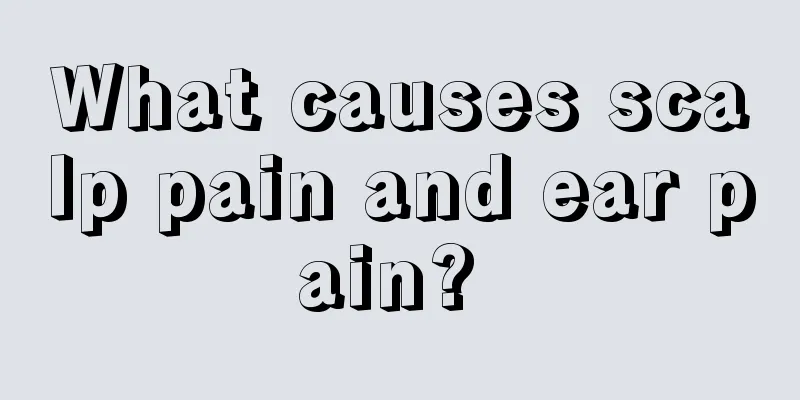Nourishing the lungs ≠ preventing smog. This way of preventing smog is not entirely correct

|
In recent days, people have been asking about this. Some Korean media said that "pork belly contains unsaturated fatty acids, which can effectively help expel fine particles and heavy metals that have long accumulated in the human respiratory organs and lungs." At the same time, sales of mineral water in South Korea have increased significantly due to the legend that drinking mineral water can fight smog. It sounds a bit ridiculous, but no matter how absurd the statement is, as long as it is linked to "fighting smog", it will attract special attention. Fatty acids and unsaturated fatty acids Let’s first talk about unsaturated fatty acids, which are said to contain anti-smog ingredients. It is not something that is lacking in the Chinese diet, as both cooking oil and nut oil seeds are rich in unsaturated fatty acids. Pork belly is definitely not the main source of unsaturated fatty acids, let alone a recommended source. After hearing the Korean media's statement, many people who have some knowledge of nutrition would sneer and say, isn't all meat fat saturated fatty acids? Where do the unsaturated fatty acids come from? I would like to take this opportunity to provide some scientific knowledge on the exact state of fatty acids in meat. Are they really all saturated fatty acids? The truth is that meat contains a lot of monounsaturated fatty acids. For example, pork belly contains 40%-50% saturated fatty acids, and unsaturated fatty acids account for about half, most of which are monounsaturated fatty acids, accounting for about 45% of the total fatty acids. However, this number is not high, because the proportion of unsaturated fatty acids in the cooking oil commonly used by Chinese people is as high as 70%-90%. Chinese people who stir-fry, braise, and deep-fry every day hate that they eat too much cooking oil, so how can they lack oil? If you want to eat some unsaturated fatty acids, there is absolutely no need to turn to pork belly. Perhaps only in places like Japan and South Korea, where very little cooking oil is used, is there a need to consider increasing the amount of unsaturated fatty acids. To get back to the point, there is no credible scientific evidence to support the rumor in Korea that unsaturated fatty acids can help eliminate fine particles and heavy metals from the lungs. It is incredible how unsaturated fatty acids get from the gastrointestinal tract to the alveoli? Can the respiratory tract secrete unsaturated fatty acids? How do unsaturated fatty acids combine with heavy metals attached to the inhalable particles in the lungs? Based on my knowledge of chemistry, if there are unsaturated fatty acids in the alveoli, what will happen when they encounter heavy metals? I am afraid that the fact is that in an environment with sufficient oxygen, heavy metals such as lead and cadmium can effectively catalyze the oxidation of unsaturated fatty acids, and fat oxidation is not a good thing for the human body. Some people have also suggested that omega-3 polyunsaturated fatty acids have the effect of reducing inflammatory responses and may be beneficial for respiratory inflammation caused by haze. Unfortunately, pork fat contains almost no omega-3 fatty acids. The few polyunsaturated fatty acids it contains are mostly omega-6 fatty acids, which increase inflammatory responses. Therefore, if it is said that replacing pork belly with fatty fish (such as saury, capelin, eel, etc.) is of some help, it can be slightly accepted as this reason. Fish and aquatic products themselves have a certain degree of heavy metal pollution, and excessive intake of animal protein and animal fat will increase the carcinogenic effect of carcinogens. So don't eat too much fish just because you think you can increase the omega-3 content. In fact, there are many foods that help reduce inflammatory responses. Eating more vegetables and fruits has this effect. Replacing white rice and white flour with whole grains and potatoes also has this effect, and it is much safer than eating a lot of seafood. "Moistening the lungs" may not be related to fighting "smog"; eating more green vegetables to "fight smog" is not entirely correct Then someone asked, is the dietary therapy recommended by traditional Chinese medicine for nourishing yin and moistening the lungs and helping the liver to detoxify reliable? I am not a professional in traditional Chinese medicine, so I cannot give an effective evaluation on this. What we can understand is that there were no such smog days caused by human pollution in ancient times. It is impossible for the ancients to conduct relevant research on the effect of food on smog and leave us reliable experience. Therefore, my personal opinion is that the so-called "lung-moisturizing" ingredients may not be particularly effective against smog. However, eating some black fungus and white fungus to obtain some soluble dietary fiber can help reduce the absorption of heavy metals in the gastrointestinal tract and is also somewhat beneficial in delaying the increase in blood sugar and blood lipids after meals. It is beneficial to overall health rather than harmful. However, some people asked me with difficulty, I heard that fungus foods are highly polluting and can enrich heavy metals in the environment. Black fungus and white fungus are also fungi. Can they still be eaten? My answer is: According to the results of current measurements in various places, there are indeed reports of heavy metal exceeding the standard in fungi, but the proportion is still very small, and most products are qualified. The extent of heavy metal pollution in fungi is mainly related to its growth environment. In areas where the soil and water sources have been contaminated by heavy metals, wild mushrooms are the most dangerous. Artificially cultivated mushrooms grow on culture media and do not come into contact with the external environment, making them relatively safe. Besides, the heavy metals in fungi are not soluble and usually exist in combination with dietary fiber. Even if they enter the human body, the absorption rate is low. Therefore, there is no need to worry about the safety of various fungi as long as they are eaten in small amounts. In addition, there is a legend that "eating more green vegetables can fight against smog." This statement does make some sense, but it is only "related to the truth". This is because dark green leafy vegetables such as spinach, amaranth, rapeseed, and kale are rich in chlorophyll and carotene. Among them, chlorophyll helps reduce the mutagenic effects of certain chemical poisons, while carotene is converted into vitamin A in the body, which is beneficial to the resistance and repair ability of epithelial tissues (including the digestive tract, respiratory tract, reproductive tract, mucous membranes of the eyes and skin, etc.). The various antioxidants in it are also beneficial to reduce inflammatory responses. These effects may be beneficial in preventing damage to the respiratory mucosa caused by haze. However, this does not mean that green vegetables are special foods for fighting smog. The main food sources of vitamin A are high-cholesterol foods such as animal liver, kidney, cream, egg yolk, etc., but people are also concerned about the cholesterol in these foods. The carotene in dark green and orange-yellow vegetables and fruits can be converted into vitamin A, and these foods are also helpful in preventing various chronic diseases. According to the recommendations of my country's dietary guidelines, you should eat about half a pound of dark green leafy vegetables every day. I privately think that if a person rarely eats green vegetables on a daily basis, and now increases his intake of green leafy vegetables because they are said to be able to fight smog, then he should really be celebrating. There are so many benefits of eating dark green leafy vegetables. They are very beneficial for preventing cardiovascular and cerebrovascular diseases, diabetes, cognitive decline in the elderly and osteoporosis. Smog is just one of the harmful factors. Lack of exercise and lack of attention to nutrition will also be unhealthy. I would like to remind friends who are worried about the harm of smog: don't eat a lot of food just because you heard that it is good for preventing smog, and use it to squeeze out the share of other natural foods. For example, some people have heard that black fungus can remove pollution, so they eat it as the main dish every meal; some people have heard that lily is good for the lungs, so they eat a lot of lily as a meal. This practice is highly undesirable because a few ingredients cannot replace the health value of other ingredients. A reasonable approach is to add a small amount of these ingredients to meals, take the haze as an opportunity to increase the diversity of food, and pay more attention to your own dietary health. In fact, haze is just one of the multiple health hazards our bodies face. In addition to smog, there are also mental stress, bad mood, staying up late, lack of exercise, unreasonable food nutrition, excessive smoking and drinking, abuse of prescription drugs and many more. Although we really cannot solve the smog problem in the short term, these other problems are things that everyone can control. Unfortunately, many people would make specious arguments like this: "The smog problem hasn't been solved yet, so what's the point of me not smoking?" "The smog problem hasn't been solved yet, so what's the point of me living a healthy life?" "The food is polluted, so what's the point of me paying attention to nutrition?" This kind of logic is really harmful. Health is affected by many factors. If everything else is going well, and only smog is a concern, it is better than having multiple dangers threatening your health at the same time, right? It is like when we are at war, facing only one enemy, which is better than being attacked from all sides, or even surrounded by multiple enemies, right? Why do we ignore the aspects that we can manage well and only focus on smog? In the final analysis, it is still what I have said many times before: human inferiority. It means being infinitely lenient with yourself and always wanting to shift the blame to the environment and others. This emotion is understandable, but if you think like this all your life, you will be the only one who suffers. Since environmental pollution cannot be solved in the short term, all we can do is work to improve our own health. In this way, we can have stronger resistance than others in a polluted environment and live a better quality life. Thinking back on this, for Koreans whose daily diet may be bland and low in oil, it is indeed a happy thing to find an excuse to eat some pork belly and improve their quality of life under the pretext of smog. I started to daydream from this. Maybe in the future we can see various sayings such as "eating cheesecake can fight smog" and "eating mutton hotpot can fight smog" that give people reasons to eat more delicious food. Let's look forward to it... |
<<: Chewing your food slowly has 7 magical effects
>>: Drink more water after doing these things
Recommend
What are the symptoms before death of advanced liver cancer? 4 symptoms are symptoms before death of advanced liver cancer
Liver cancer is a malignant tumor that occurs in ...
How to pry oysters
Oysters are a delicious food, but they are diffic...
How to massage to treat myopia, 8 acupoint massage
With the development of the times, the Internet i...
What are the benefits of washing your face with aloe vera
As for the skin care effect of aloe vera, everyon...
How to reduce bone pain in patients with advanced bone cancer
Pain is the main manifestation of malignant bone ...
Does toothache after filling mean that the filling was not healed?
Tooth filling is a common treatment method in den...
Is the cure rate of early cervical cancer high?
Cervical cancer is a major disease that threatens...
What are the early symptoms of kidney failure?
The kidneys are the most important internal organ...
How to wash ink off clothes in daily life
Washing clothes is an important step in family li...
Is acne contagious?
Acne, similar to pimples, is a disease that is mo...
Pneumoconiosis CT manifestations
Many hard front-line jobs are not only physically...
What causes numbness in my left arm?
People who often feel numbness in their left arm ...
What are the symptoms of frequent urination and incomplete urination? What is the disease?
It is common for men to experience frequent urina...
Wind oil essence to remove stains
Fengyoujing is a medicine that is often used in l...
How long after a failed IVF can I try again
The IVF method of pregnancy mainly involves remov...









